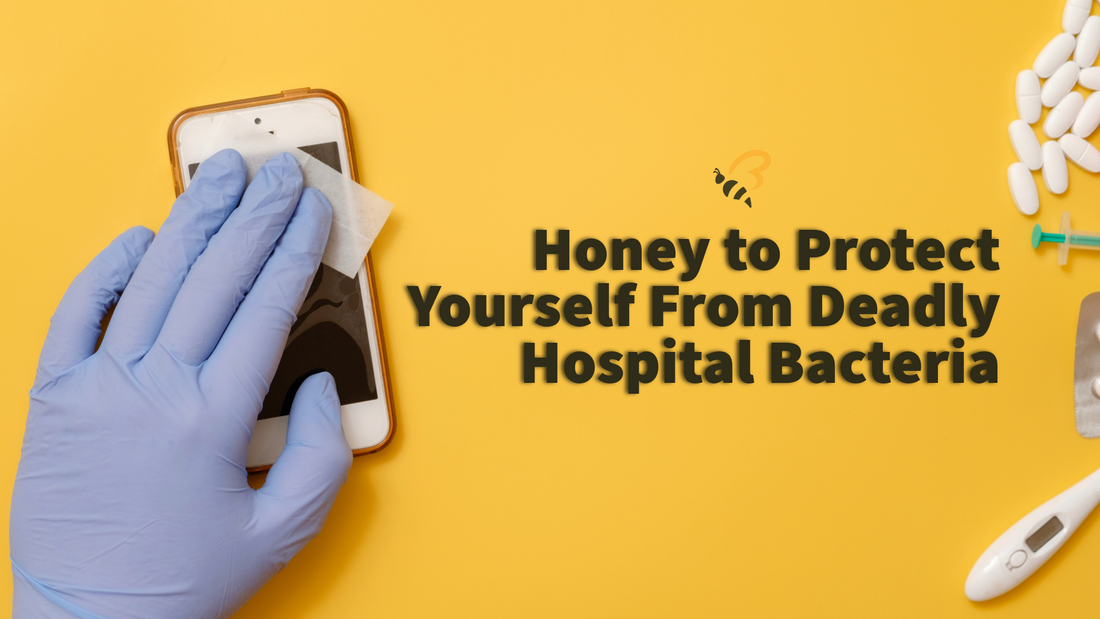
Honey to Protect Yourself From Deadly Hospital Bacteria
Share
Hospitals: A Place We All Visit
We all visit hospitals at some point in our lives. Whether it’s visiting someone after surgery or welcoming a newborn baby into someone’s life, eventually, we will need to enter a hospital and probably spend some time there.
The Hidden Danger: MRSA
Today, virtually all hospitals are infected with MRSA—a potentially deadly bacteria that can be treated successfully with antibiotics. So what do we do the next time we, or a loved one, find ourselves on our way to a hospital?
An MRSA infection is a skin infection caused by a specific type of Staphylococcus bacteria that is resistant to conventional antibiotics. MRSA stands for methicillin-resistant Staphylococcus aureus.
This pathogen can be difficult to eliminate due to its antibiotic resistance, and infections often last longer than usual.
A Natural Solution: Honey
The potency of honey as an antibacterial agent has been confirmed in scientific research, showing honey is particularly effective for skin infections caused by MRSA. Honey also has wound-healing properties that can speed up recovery.
For more information, read the scientific study: PubMed Research.
Home Remedy for MRSA Using Honey:
- Spread a thin layer of honey on the infected skin.
- Let it sit for a few minutes.
- Rinse with warm water.
- Pat the area thoroughly dry.
- Repeat this treatment once a day for one week.
Boosting Resistance to MRSA
When visiting someone at the hospital, you can increase your resistance to MRSA by taking a spoonful of raw honey before and after the visit. This will help boost your immune system and improve your resistance to any potential pathogens that may enter your body.
By incorporating honey into your routine, you can protect yourself and your loved ones against the risks of MRSA while benefiting from its natural antibacterial and immune-boosting properties.



